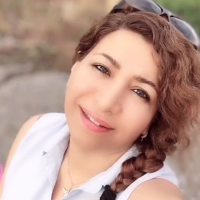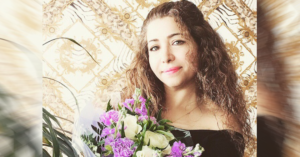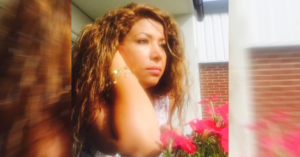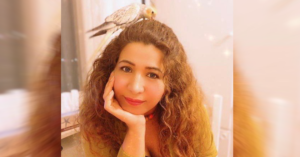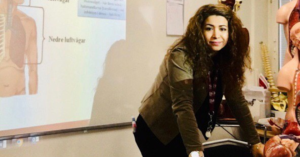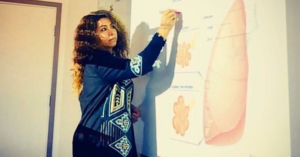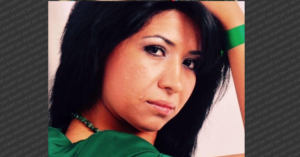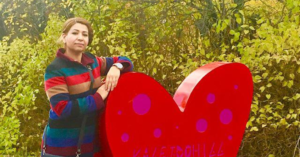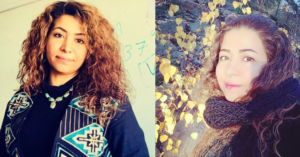Mitra Ahmady
Mitra, the River That Flowed
On the morning of Thursday, January 9, she’d have been in school alongside the other boys and girls. She would have smiled at each and every one of them, and remarked to one, “It’s cold, isn’t it?”
To the teenage girl approaching her, she’d say: “How are you? I love your boots.”
She’d make her way down the corridors and get to her classroom. She’d open the door, see the correspondence on her desk, open it with care and read.
Mitra had been invited to discuss managing the school before. She had considered it for a long time. She had thought about the long way she had come. Even during her time in Iran, she had kept on thinking about it, and she was now ready to take it on.
Mitra was born on December 23, 1973 in an old neighborhood in Hamedan called Zorriasateyn. Her mother was from Tehran, her father from Hamedan. She went to school there and later got into Tehran’s Allameh Tabataba’i University, attaining her BA in Persian Literature.
She got married at 25 but didn’t want to stay at home. Instead, she wanted to learn more. She attended Arak University every week and finally was able to get her MA in linguistics. Her weekly trips to Arak, which took place over several years, never tired her. The inter-city buses, the Sohan shops in Qom, the junction at Salafchegan…
In 2001, she gave birth to a daughter in Hamedan. They named her Honamik: “of good name”. And that’s just what everyone remembers of Mitra.
“We have to leave. They hate women here. They hate girls. We’re living under the boots of a dictator.”
Mitra wanted to go. But her husband didn’t agree.
Honamik was not yet six months old when they got off the plane in Amsterdam. Mitra knew that from now on, she’d be both mother and father to this lonely little girl. It took a long time before she could get to Sweden. The immigration offices, the interviews, the forms! Look in your bag to see if you can find the return bus ticket! Call to see if your daughter, sleeping over at a friend’s house, has woken up yet!
She fought to prove herself. The high ambition of her teenage days continued for her in Stockholm: the ambition to fight for what she wanted, which now included fighting for her child. Eventually she was hired as a teacher at the Didacus High School, where she taught personal and health education. “I teach the kids about subjects that are taboo in Iran,” she’d say. Youngsters have to discover the world around them, no matter what their heritage, skin color or past.
“When we lost Mitra,” her sister writes, “not just we, but all her friends and even those who had known her just her a little, felt profound sorrow. All anyone could remember of her was kindness.
“The schoolchildren wrote many letters. After they lost her, they discovered for the first time that Mitra had been sending financial support to kids in faraway lands, ever since she first emigrated.” They also found out that Mitra had always kept a photo of her mother, brother, sister and daughter in the drawer of her desk in the classroom.
Honamik, the only lasting fruit of Mitra’s existence after all her life’s ups and downs, was about to turn 18. Mitra’s heart had been warm and full of hope for the future. “She’s becoming an adult,” she would say. “If she goes to college this year, then, perhaps, I can finally catch my breath. I have high hopes for her, dreams for her!”
Of the Persian festivities, Mitra loved Nowrooz and Yalda the most, especially the night of Yalda, the night the sun was born. All her friends and family knew that no matter where in the world she was, she’d always return to her family to be with her mother, who was very dear to her, to celebrate Yalda. So as usual, this year, Mitra had come to Iran to spend December and January with her family.
On Thursday, January 9, she’d have to sat in her room, read the letters and reflected on the time they’d spent together. People, countries, pupils, her daughter.
She was thinking of all of this when she got on the plane. As she was thinking, a cabal of criminals issued the order to shoot it down.
Mitra’s memory will never leave us.
Writer: Shahin Ahmady (Sister)
Translator: Arash Azizi
Editor: Hannah Somerville
With the support of iranwire.com
